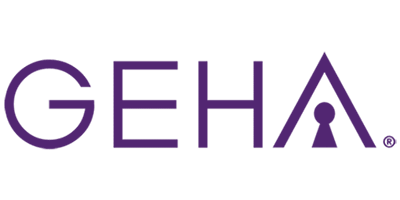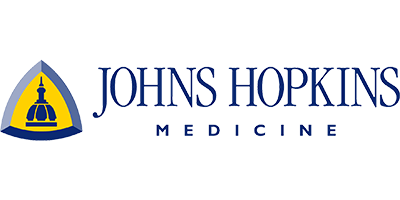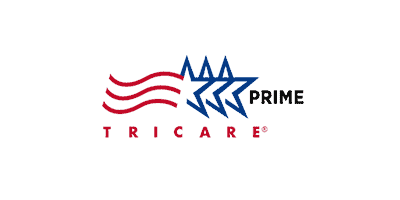Substance abuse can rear its head in various forms, such as mild or severe addiction, dependence on drugs, alcohol, or a combination of both. Many people begin using these substances to help them cope with pain, stress, trauma, and mental health conditions. However, alcohol and substances like opioids, benzos, or stimulants can quickly cause dependency. The problem will likely worsen without proper treatment from physicians, mental health professionals, and substance abuse treatment programs.
At Olympic Behavioral Health in West Palm Beach, FL, we understand how difficult life can sometimes feel and how tempting it may be to self-medicate with drugs and alcohol. But it does not have to be that way. With the help of our substance use disorder treatment in West Palm Beach, FL, we can guide you on your path to the happy, healthy life you deserve. Call us today at (561) 272-0800 to learn how we can help you heal from addiction in our relaxing beach community setting.

HOW CAN SUBSTANCE ABUSE TREATMENT PROGRAMS IN WEST PALM BEACH, FL, HELP YOU RECOVER FROM ADDICTION?
While you may be tempted to try to quit drug or alcohol use on your own, it is not always possible to do this successfully. Withdrawal symptoms and cravings can be powerful, making it challenging to stick it out throughout the detox. Many people relapse and put themselves at risk of overdose when trying an at-home detox. Enroll in a reputable substance abuse treatment program to stay safe as you detox from drugs and alcohol.
At Olympic Behavioral Health, our substance abuse treatment programs in West Palm Beach, FL, are designed to treat specific addictions. We do this by:
- Providing you with behavioral therapies like cognitive-behavioral therapy (CBT) and dialectical behavior therapy (DBT) that explore the root causes of your addiction, teach you how to identify and eliminate triggers, and guide you to choose healthier behaviors
- Dispensing medications as part of medication-assisted treatment (MAT) to help manage withdrawal symptoms and cravings
- Offering dual diagnosis treatment via medication and therapy to treat co-occurring mental health conditions that contribute to and exacerbate substance use disorder
- Holding group therapy sessions for opportunities to bond with your peers, share struggles and successes, and reinforce coping skills and relapse prevention
- Conducting family therapy to help rebuild relationships harmed by addiction, strengthen your support system, and improve your home environment
- Providing complementary therapies, such as acupuncture, yoga, art, music, nature, and equine therapy, to enhance your recovery experience
Overcoming addiction is about much more than just discontinuing substance use. Your mind, body, and spirit all need to be healed for a full recovery. You can achieve lasting sobriety with all the resources and tools offered by substance abuse treatment programs.

OLYMPIC BEHAVIORAL HEALTH: PROVIDING THE TOP SUBSTANCE USE DISORDER TREATMENT PROGRAMS IN WEST PALM BEACH, FL
Choosing the right addiction treatment program can make all the difference in your recovery. Olympic Behavioral Health offers substance abuse treatment programs in West Palm Beach, FL, prioritizing your comfort and well-being. To ensure your success, we also provide an option for sober housing in luxurious accommodations so you can feel more relaxed as you undergo treatment. For the ultimate recovery experience, reach out to us today at (561) 272-0800 to get started on your path to lifelong sobriety.
Drug and alcohol detox centers in West Palm Beach, FL

Of the millions of Americans struggling with drug and alcohol addiction, only a tiny percentage can successfully quit independently. Drug and alcohol withdrawal symptoms can range in severity, making quitting cold turkey uncomfortable and even dangerous in some cases. With the help of drug and alcohol detox centers and our substance abuse treatment, you do not have to attempt to end your addiction alone.
Olympic Behavioral Health’s trusted detox center partners in Boynton Beach, FL, can help you get through even the most challenging withdrawal symptoms and cravings. We partner with trusted professionals to give you the most effective detox experience so that you can move on to one of our intensive outpatient addiction treatment programs in FL. Call us today at (561) 272-0800 to learn how we help support your detox treatment and provide ongoing care to sustain your recovery from addiction to drugs and alcohol.
HOW DO YOU KNOW IF YOU NEED DETOX TREATMENT IN SOUTH FLORIDA?
You may notice that substance abuse treatment programs in Florida are offered with varying levels of care. This is to accommodate different types of addiction and the range of severity of addictions. Someone with a mild addiction may succeed with a traditional outpatient treatment program in FL requiring minimal time commitment. On the other hand, a person battling a severe addiction to drugs and alcohol may need more intensive addiction treatment, including a detox in FL. Without the help of drug and alcohol detox centers in Florida, this person may find it impossible to break their deeply ingrained habit.
How can you tell if you will require detox treatment to end your addiction to drugs and alcohol? Here are some factors that may indicate the need for a professional detox:
- You have tried to quit before, but the withdrawal symptoms were too intense.
- You experience shakiness and anxiety as soon as two hours after an alcoholic drink.
- Your drug or alcohol use includes high or frequent doses.
- You feel the need to use drugs or alcohol as soon as you wake up in the morning.
- You have a co-occurring mental health disorder that is contributing to your addiction.
- You’ve been battling addiction for years.
The severity of drug and alcohol withdrawal can be pretty intense if any of the above apply to you. However, everyone’s bodies respond differently to drug and alcohol withdrawal, and you can encounter unbearable discomfort even if your addiction is considered minor. Your best course of action is to reach out to drug and alcohol detox centers in South Florida for an assessment to determine if a drug and alcohol detox in FL is necessary.

HOW CAN DRUG AND ALCOHOL DETOX CENTERS IN FLORIDA HELP?
As you can see, several factors can make it nearly impossible or dangerous to try detoxing on your own at home. Rather than attempting an at-home drug and alcohol detox and running a high risk of relapse and overdose, reach out to professional drug and alcohol detox centers in Florida for proper addiction treatment. These drug and alcohol addiction treatment centers in Florida can help by:
- Assessing your current state of health and designing a personalized addiction treatment plan
- Monitoring you around the clock to ensure your safety during detox
- Providing medication to help alleviate discomfort from withdrawal symptoms
- Dispensing medication to ease anxiety, depression, and insomnia so that you can rest as much as possible during detox
- Offering support from a designated care team
People who choose to get help from drug and alcohol detox centers have a much higher success rate in recovery. When your withdrawal symptoms are well managed, it is easier to stay focused on healing.
OLYMPIC BEHAVIORAL HEALTH: CAN HELP YOU FIND A DRUG AND ALCOHOL DETOX IN WEST PALM BEACH, FL
At Olympic Behavioral Health, we realize that intense withdrawal symptoms and cravings can make beginning sobriety feel impossible. We are here to help you through withdrawal with drug and alcohol detox in Boynton Beach, FL from one of our trusted partners. Your health and well-being are our priorities, so you can feel confident that you are getting the best care while recovering from drug and alcohol addiction. Call us today at (561) 272-0800 to get the help you need to detox safely and comfortably.



























